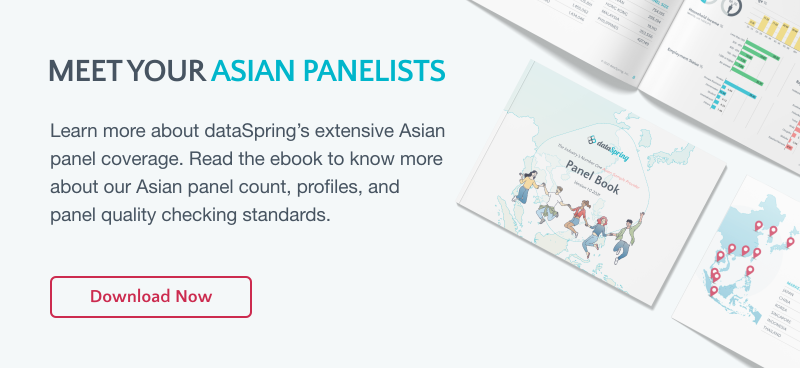
Localizing ensures the data and insights produced from your global study are valid and comparable across markets.
Even the most experienced researchers and consultants can find it challenging to successfully field a global study. The combination of setting up the study, finding suitable sample providers and coordinating fieldwork sometimes means that one of the most important aspects of the study - localization of the questionnaire - is often not given proper attention.

Remember, localization and translation are NOT the same thing. A good questionnaire translation into the local language, including idioms and vernacular, is critical, yes, but localization- understanding the cultural and social norms of a specific geographic location- is what separates a good study from a great one.
Here are five key aspects to consider when you begin to localize your global study:
1. Fieldwork Supplier
This may seem obvious, but with the wide availability of global online sample, many market research firms claim to be “global” but do not really have the experience necessary to pull off a successful study. Firms with true global expertise will help you navigate thorny issues such as knowing local holiday and vacation schedules so that fieldwork is scheduled accurately and having customer support that works across times zones so that studies are launched smoothly.

If your study is to be conducted online, another often overlooked aspect of localization is the survey platform. While most systems can handle foreign language translation and right-to-left (RTL) languages such as Arabic and Hebrew, make sure the system itself has the ability to translate the text for buttons like "Next" and "Submit” and error messages.
2. Sample Supplier
Of course, the quality sample is one of the keys to a successful study, but it is even more imperative to source quality sample in a global study. This is especially true in countries and regions where market research is less developed, like China. As Xiaoyi Chai, General Manager China at dataSpring remarked in the blog What Causes Panel Attrition in China?, “There are many companies attempting to capitalize on the demand for research sample in China and other markets who do not use any quality controls.”

Ensure your sample provider is using legitimate recruiting methods and, if utilizing an online panel, adheres to industry standard sample quality and panel management norms, like those provided by ESOMAR.
3. Language Translation
Let’s get one thing out of the way: computer/machine language translations are not acceptable for market research. For a study to yield usable data, the respondent must fully understand question and response meaning. Often, source questionnaires use language (idioms, colloquialisms, etc.) that is difficult to translate as there are no equivalent local language concepts. This is where human translators with a strong command of the source and target language make the difference.

Translation is also an area where the choice of research supplier can make a difference. Choose a firm that has staff in the region to provide guidance during the translation and localization process. They will have the depth of knowledge to avoid issues like confusing phrases or the use of leading questions. And, if the study is to be conducted online, an experienced global firm will be able to guide the translation so all supporting materials (introduction email, instructions, etc.) are clear and motivate respondents to participate and complete the survey.
4. Cultural Considerations
This is one area that can significantly derail a project. Jun Uematsu, dataSpring Director in Japan notes the heightened sensitivity in areas such as gender identity, religion, and politics, “Today, it is very important to consider a respondent’s potential reaction to certain topics, as well as the wording of questions and responses.”

Certain topics may be considered offensive to include in a survey. For example, in majority Muslim countries like Indonesia or Malaysia, questions about consuming alcohol could be considered highly insensitive and offend respondents. Topics that touch on religion or religious practices may also be problematic, so they must be carefully considered before including in a questionnaire. Likewise, in certain regions it is imperative to review questions and responses for topics that are overtly political or could be construed as a commentary on the government. Again, this is where an experienced global research firm is invaluable.
5. Rating Scales
To some degree, respondents from different regions and cultures can tend to utilize scales differently, with some generally rating either consistently high or low for all questions. It is important to keep this in mind, both in survey creation and analysis. If committed to using scales, it may be appropriate to employ a scale-usage model so data across countries can be equivalently analyzed.

In some cases, alternative methods such as MaxDiff approaches, where scales are eliminated and respondents choose a favorite and least favorite attribute, may be more appropriate. This is another area where thoroughly investigating the experience of the supplier and the capabilities of the survey platform are critical.
Final Thoughts
Market research is defined as “the action or activity of gathering information about consumers' needs and preferences.” In a global study, a thorough and complete process of localization will help ensure that the insights derived from the survey will truly represent the local market’s needs and preferences.



 Download Panel Book
Download Panel Book


